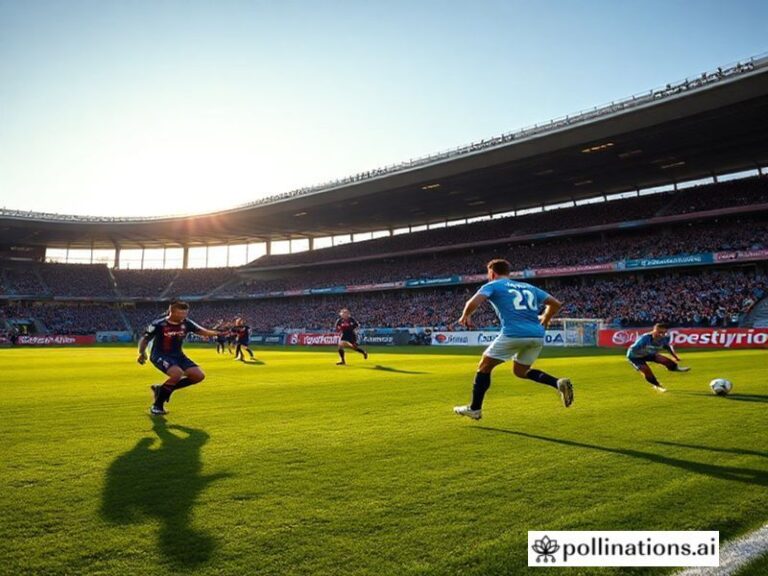Global Podiums, Local Delusions: How Weekend Racing Results Became the World’s Most Honest Mirror
Monaco, 6:07 p.m. local time. As the chequered flag fluttered like a surrendering white hanky, Max Verstappen crossed the line first and immediately apologised to his engineers for “only” breaking the track record by eight-tenths. Somewhere in the same second, a Nairobi boda-boda rider named Kiptoo beat a city bus by half a wheel, earning an extra 200 shillings and a lifetime ban from that particular matatu union. Both victories counted, both were cheered, and both will be forgotten by Tuesday—unless Netflix needs a subplot.
Welcome to the global church of speed, where the liturgy is measured in milliseconds and the collection plate is denominated in petro-dollars. From Monte Carlo to Maracaibo, the racing results that scrolled across millions of screens this weekend weren’t merely about who stood on what step of a podium. They were Rorschach tests for the societies that produced them—and, naturally, for the advertisers paying $7 million per thirty-second slot to convince said societies they’re still virile.
Formula 1’s European swing delivered the usual gilded absurdity: carbon-ceramic brakes glowing like artisanal charcoal, champagne sprayed with the solemnity of a pesticide commercial. Red Bull’s latest win keeps the Milton Keynes accountants smug, but the real headline is further down the spreadsheet: Haas, the plucky American team running on a budget smaller than the catering line at Mercedes, actually scored points. If that doesn’t sound revolutionary, try telling it to a Guatemalan avocado farmer whose entire annual revenue equals one front-wing endplate.
Meanwhile, in the Andros Trophy—France’s ice-bound answer to “what if rally cars had an identity crisis”—a Peugeot fitted with studded tyres won by lapping a ski resort. The French shrugged; the tyre company’s stock ticked up 1.3 %. Somewhere in Siberia, a Yakutian trucker watched the highlights, laughed at the concept of “winter tyres,” then chain-smoked his way across a frozen river that doubles as federal highway M56.
Travel east and the plot thickens like Beijing smog. China’s Formula E race in Sanya was won by a Dutchman driving for a German team powered by Indian software, all under the watchful eye of local party officials who still refer to electricity as “the new opium of the people.” The irony? The winning car was charged using diesel generators parked discreetly behind a billboard for renewable futures. The organisers promise next year will be “even greener,” which presumably means painting the generators a lighter shade of camouflage.
Down in São Paulo, stock-car hero Felipe Massa (yes, still him) took the final step of the podium in Brazil’s touring-car championship, proving that retirement is just a word Brazilians use when they want a new contract. The crowd chanted his name, then went home to neighbourhoods where the average speed of a police chase is higher than the race itself. One local journalist quipped that the only real difference is the lack of a podium for the getaway drivers; social mobility, apparently, is for suckers.
Zoom out and the pattern is clear: nations may argue about tariffs, vaccines, or whose submarine deal is more stab-worthy, but everyone agrees that going faster than the other bloke is a universal language. The broadcast rights alone—sold in 200-odd territories—generate enough cash to bankroll a medium-sized coup. And because the modern viewer demands moral absolution with their circuses, each series now plants a tree for every litre of fuel burned, preferably in a country too poor to object.
So what do these disparate racing results actually tell us, beyond the obvious point that rich men in fireproof pajamas remain the world’s most reliable export? Simply this: that humanity, having perfected the art of turning fossilised dinosaurs into noise, is now perfecting the art of pretending it feels bad about it. We cheer the speed, bet on the outcome, then tut-tut about climate change during the ad break for the same energy drink that sponsors the winner. It’s a beautiful, idiotic ballet, and the encore is scheduled for next Sunday—weather, politics, and supply-chain permitting.
In the end, the podium is temporary, the champagne is non-vintage, and the highlight reels will be overwritten by next week’s outrage. But the dopamine is real, the data is sold, and somewhere a ten-year-old in Jakarta is already drawing a Red Bull logo on his notebook. The race never stops; it just changes lanes.







